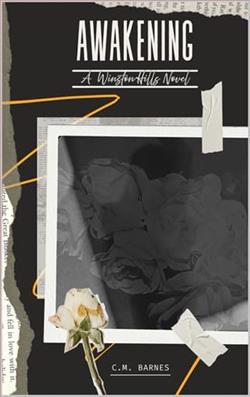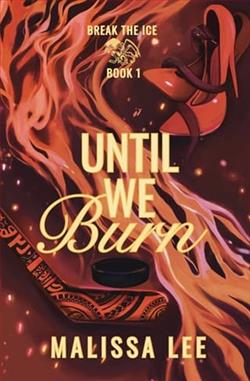Page 25 of Holly Ever After
“Yeah, well,” he shrugs, looking away. “It is what it is. I better get going.”
“Sean,” I call as he walks away. “If you need anything…”
“Don’t worry your pretty little head about a thing. See you tomorrow, Squirt.”
Eleven
Sean
Iwake up in my childhood bedroom, a room wallpapered in the distant echoes of adolescence—vintage band posters, a deflated football, dusty trophies from a time when life was simpler. The bed's a little too small for my adult frame, and the mattress feels like a slab of granite under my back. I haven't slept in this room since I was eighteen, hell-bent on escaping to the freedom of adulthood. But these days, I find myself back here more and more, and not because I'm nostalgic.
A dull throb pulses behind my eyes, evidence of a late-night filled with restless sleep. Rolling out of bed, I drag myself to the window and peer through the worn curtains. It's a dreary morning, the sky clouded over with a thick blanket of gray. Somehow, it feels fitting.
When I arrived last night, the house was an even bigger mess than usual. The disarray had a desperate quality to it, as if someone had been searching for something—something important, something urgent. I found my mom in the middle of it, her eyes clouded with confusion and frustration.
“Where's my money, Sean? I know I had it right here,” she had said, rummaging through a pile of mail and old receipts. She looked up at me, her eyes lacking the clarity they once had.
It took me all of two minutes to find her purse sitting on the kitchen table, her wallet buried under some crumpled tissues and old grocery lists. Her money was right where it should be.
“I need to take my medication,” she insisted afterward, her fingers trembling as she tried to open a childproof cap.
“But you've already taken it, Ma,” I reminded her gently.
Her eyes narrowed, mistrust clouding her gaze. “Are you sure?”
I sighed. “Yes, I'm sure. I gave it to you this morning.”
As I stand here now, staring at the four walls that once defined my world, I can't escape the sinking feeling that I'm in over my head. I should hire someone to help clean the house, but the thought makes me uneasy. The last two housekeepers I hired didn't last a week. My mom's unpredictable moods and increasing paranoia scared them off, leaving me back at square one.
I run my fingers through my hair, pulling at the roots as if I could yank out the stress and uncertainty tangled there. What am I going to do? How do you care for someone who's slipping away right in front of you, their mind unraveling thread by fragile thread?
I need a solution, and I need it fast. But for now, the weight of the unknown pins me down, heavy and unyielding, as I brace myself for another day of challenges I'm not sure I'm equipped to handle.
As I sit on the edge of the bed, my gaze drifts to an old family photo perched on the worn-out dresser. It's a snapshot from a rare moment of happiness—Mom smiling with a youthful sparkle in her eyes, and a much younger me, grinning ear to ear, totally unaware of the storms that would soon cloud our lives.
Times were never easy for us. Mom did her best, but when life threw its punches—and it often did—she sought solace at the bottom of a bottle. And Dad? Well, let's just say he lacked the courage to be the man he should have been, vanishing from our lives and leaving a hole too large for either of us to fill. The burden, by default, fell on my shoulders. Bill payments, groceries, even comforting my mother after one of her drinking binges—all responsibilities that should have never been mine to begin with.
Maybe that's why the Winters were such a haven for me. They took me in when I needed an escape, showed me what family could really be about—warm dinners, laughter, unconditional support. It was like stepping into a different world whenever I crossed their threshold. They did what they could to help, but it wasn't their place to fix a home that was so fundamentally broken. Still, their kindness provided a contrast, a model for what I wanted in my own life someday.
I got out as soon as I could, eager to break free from the suffocating atmosphere of my home. I worked my ass off for every success, for every ounce of stability and peace I now have. There were years when resentment for my mother built up like plaque, a bitterness that was hard to shake. I blamed her for the hardships, for the chaos, for all the nights I spent lying awake wondering what kind of mess I'd have to clean up the next morning.
But as the years roll on and I see her deteriorating before my eyes, resentment gives way to something softer, more tender—pity. It's hard to hold a grudge against someone who's becoming a stranger even to herself. She tried. I know that now. She fought her battles the only way she knew how, armed with inadequate weapons and outdated armor.
Taking a deep breath, I push off from the bed and head downstairs to the kitchen. Ma is already there, seated at the worn-out table that has seen better days, just like us. I can tell she's a bit disoriented, so I put on a reassuring smile. “Morning, Ma. How about some eggs and toast?”
Her eyes meet mine, clouded but appreciative. “That sounds lovely.”
I get to work, cracking eggs into a skillet and placing slices of bread in the toaster. The familiar routine brings a sense of normalcy, a small reprieve from the worries that have become a constant backdrop. As I plate the eggs and toast, I make her a cup of herbal tea, something to calm her nerves.
“There you go,” I say, setting the plate and cup down in front of her. I linger for a moment, watching her take small bites, then announce, “I've got to head out.”
“Working again?”
I nod.
“You work too hard. You need a break.”
I kiss the top of her head. “It’s almost Christmas. I’ll take a break then.”















